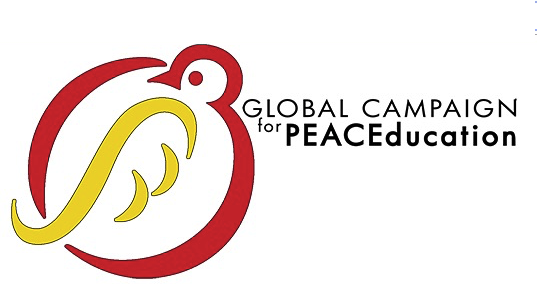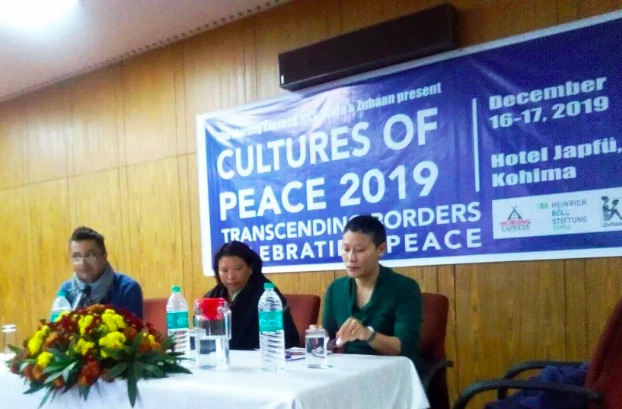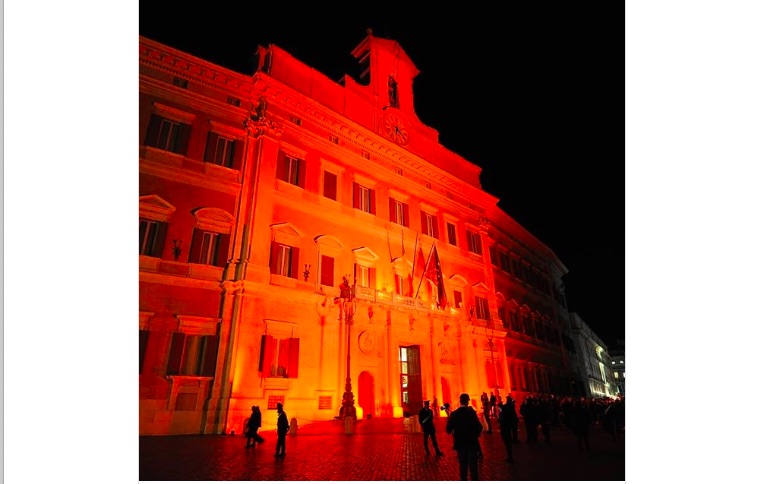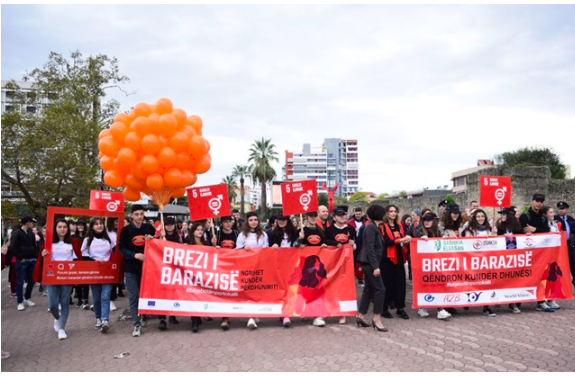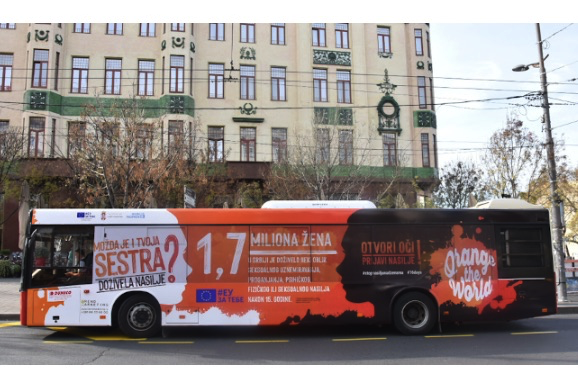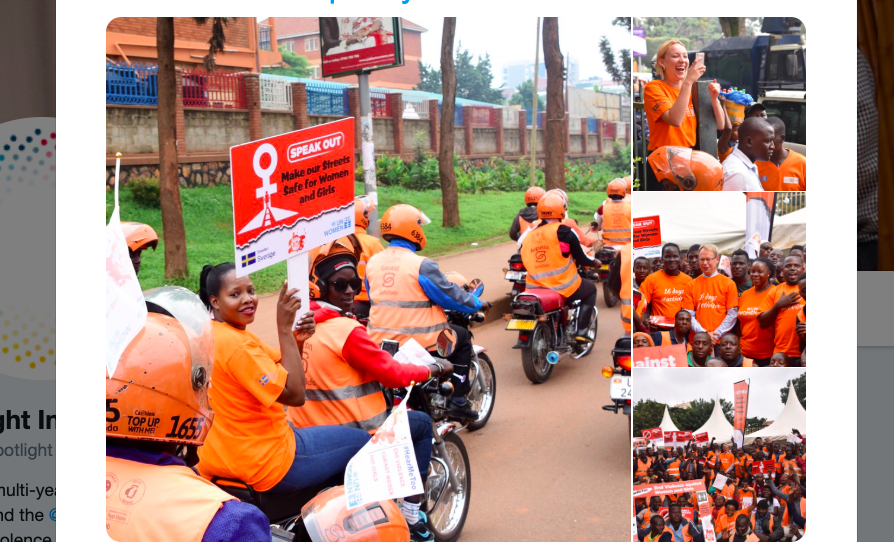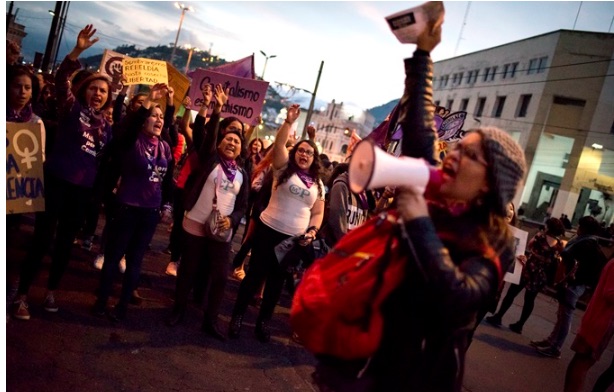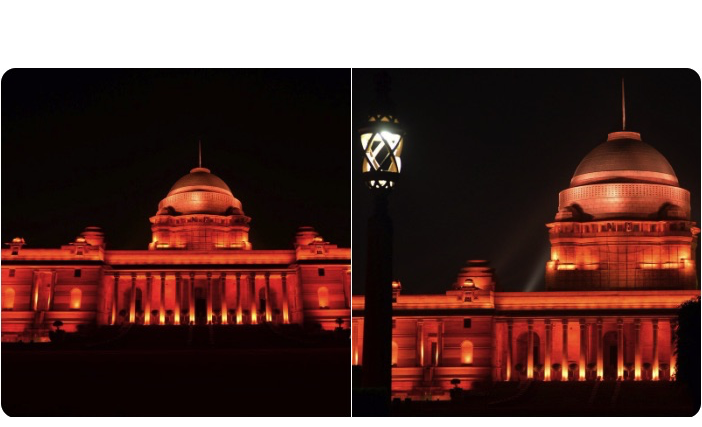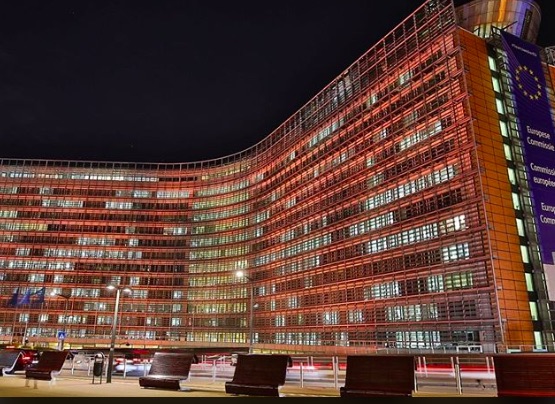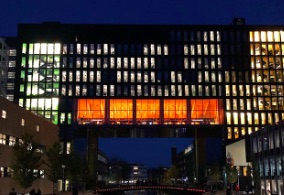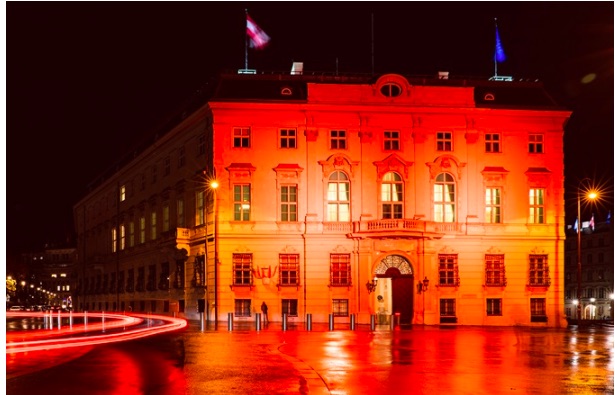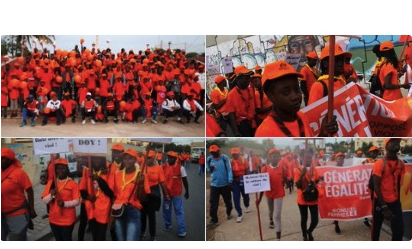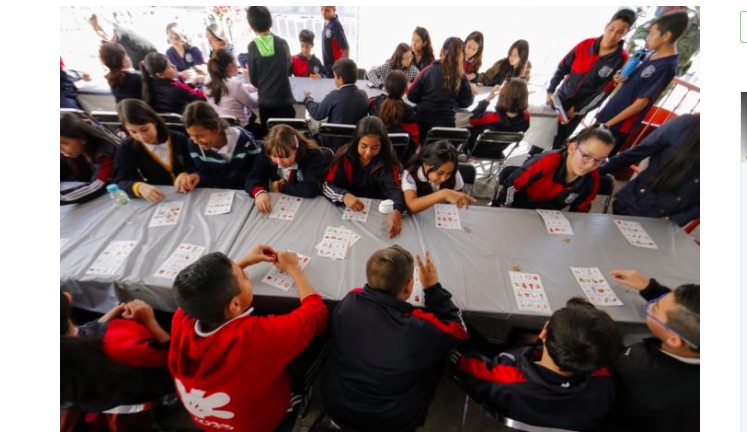FREE FLOW OF INFORMATION .
A transcript from the Vatican
Peace As A Journey Of Hope: Dialogue, Reconciliation And Ecological Conversion
1. Peace, a journey of hope in the face of obstacles and trial
Peace is a great and precious value, the object of our hope and the aspiration of the entire human family. As a human attitude, our hope for peace is marked by an existential tension that makes it possible for the present, with all its difficulties, to be “lived and accepted if it leads towards a goal, if we can be sure of this goal, and if this goal is great enough to justify the effort of the journey. Hope is thus the virtue that inspires us and keeps us moving forward, even when obstacles seem insurmountable.

Our human community bears, in its memory and its flesh, the scars of ever more devastating wars and conflicts that affect especially the poor and the vulnerable. Entire nations find it difficult to break free of the chains of exploitation and corruption that fuel hatred and violence. Even today, dignity, physical integrity, freedom, including religious freedom, communal solidarity and hope in the future are denied to great numbers of men and women, young and old. Many are the innocent victims of painful humiliation and exclusion, sorrow and injustice, to say nothing of the trauma born of systematic attacks on their people and their loved ones.
The terrible trials of internal and international conflicts, often aggravated by ruthless acts of violence, have an enduring effect on the body and soul of humanity. Every war is a form of fratricide that destroys the human family’s innate vocation to brotherhood.
War, as we know, often begins with the inability to accept the diversity of others, which then fosters attitudes of aggrandizement and domination born of selfishness and pride, hatred and the desire to caricature, exclude and even destroy the other. War is fueled by a perversion of relationships, by hegemonic ambitions, by abuses of power, by fear of others and by seeing diversity as an obstacle. And these, in turn, are aggravated by the experience of war.
As I observed during my recent Apostolic Journey to Japan, our world is paradoxically marked by “a perverse dichotomy that tries to defend and ensure stability and peace through a false sense of security sustained by a mentality of fear and mistrust, one that ends up poisoning relationships between peoples and obstructing any form of dialogue. Peace and international stability are incompatible with attempts to build upon the fear of mutual destruction or the threat of total annihilation. They can be achieved only on the basis of a global ethic of solidarity and cooperation in the service of a future shaped by interdependence and shared responsibility in the whole human family of today and tomorrow”.
Every threatening situation feeds mistrust and leads people to withdraw into their own safety zone. Mistrust and fear weaken relationships and increase the risk of violence, creating a vicious circle that can never lead to a relationship of peace. Even nuclear deterrence can only produce the illusion of security.
We cannot claim to maintain stability in the world through the fear of annihilation, in a volatile situation, suspended on the brink of a nuclear abyss and enclosed behind walls of indifference. As a result, social and economic decisions are being made that lead to tragic situations where human beings and creation itself are discarded rather than protected and preserved. How, then, do we undertake a journey of peace and mutual respect? How do we break the unhealthy mentality of threats and fear? How do we break the current dynamic of distrust?
We need to pursue a genuine fraternity based on our common origin from God and exercised in dialogue and mutual trust. The desire for peace lies deep within the human heart, and we should not resign ourselves to seeking anything less than this.
2. Peace, a journey of listening based on memory, solidarity and fraternity
The Hibakusha, the survivors of the atomic bombs dropped on Hiroshima and Nagasaki, are among those who currently keep alive the flame of collective conscience, bearing witness to succeeding generations to the horror of what happened in August 1945 and the unspeakable sufferings that have continued to the present time. Their testimony awakens and preserves the memory of the victims, so that the conscience of humanity may rise up in the face of every desire for dominance and destruction. “We cannot allow present and future generations to lose the memory of what happened here. It is a memory that ensures and encourages the building of a more fair and fraternal future”.
Like the Hibakusha, many people in today’s world are working to ensure that future generations will preserve the memory of past events, not only in order to prevent the same errors or illusions from recurring, but also to enable memory, as the fruit of experience, to serve as the basis and inspiration for present and future decisions to promote peace.
What is more, memory is the horizon of hope. Many times, in the darkness of wars and conflicts, the remembrance of even a small gesture of solidarity received can lead to courageous and even heroic decisions. It can unleash new energies and kindle new hope in individuals and communities.
Setting out on a journey of peace is a challenge made all the more complex because the interests at stake in relationships between people, communities and nations, are numerous and conflicting. We must first appeal to people’s moral conscience and to personal and political will. Peace emerges from the depths of the human heart and political will must always be renewed, so that new ways can be found to reconcile and unite individuals and communities.
The world does not need empty words but convinced witnesses, peacemakers who are open to a dialogue that rejects exclusion or manipulation. In fact, we cannot truly achieve peace without a convinced dialogue between men and women who seek the truth beyond ideologies and differing opinions. Peace “must be built up continually”; it is a journey made together in constant pursuit of the common good, truthfulness and respect for law. Listening to one another can lead to mutual understanding and esteem, and even to seeing in an enemy the face of a brother or sister.
The peace process thus requires enduring commitment. It is a patient effort to seek truth and justice, to honour the memory of victims and to open the way, step by step, to a shared hope stronger than the desire for vengeance. In a state based on law, democracy can be an important paradigm of this process, provided it is grounded in justice and a commitment to protect the rights of every person, especially the weak and marginalized, in a constant search for truth.[6] This is a social undertaking, an ongoing work in which each individual makes his or her contribution responsibly, at every level of the local, national and global community.
(Article continued in the column on the right)
Questions related to this article:
Where in the world can we find good leadership today?
(Article continued from the column on the left)
As Saint Paul VI pointed out, these “two aspirations, to equality and to participation, seek to promote a democratic society… This calls for an education to social life, involving not only the knowledge of each person’s rights, but also its necessary correlative: the recognition of his or her duties with regard to others. The sense and practice of duty are themselves conditioned by the capacity for self-mastery and by the acceptance of responsibility and of the limits placed upon the freedom of individuals or the groups”.
Divisions within a society, the increase of social inequalities and the refusal to employ the means of ensuring integral human development endanger the pursuit of the common good. Yet patient efforts based on the power of the word and of truth can help foster a greater capacity for compassion and creative solidarity.
In our Christian experience, we constantly remember Christ, who gave his life to reconcile us to one another (cf. Rom 5:6-11). The Church shares fully in the search for a just social order; she continues to serve the common good and to nourish the hope for peace by transmitting Christian values and moral teaching, and by her social and educational works.
3. Peace, a journey of reconciliation in fraternal communion
The Bible, especially in the words of the Prophets, reminds individuals and peoples of God’s covenant with humanity, which entails renouncing our desire to dominate others and learning to see one another as persons, sons and daughters of God, brothers and sisters. We should never encapsulate others in what they may have said or done, but value them for the promise that they embody. Only by choosing the path of respect can we break the spiral of vengeance and set out on the journey of hope.
We are guided by the Gospel passage that tells of the following conversation between Peter and Jesus: “Lord, how often shall my brother sin against me, and I forgive him? As many as seven times?” Jesus said to him, “I do not say to you seven times, but seventy times seven” (Mt 18:21-22). This path of reconciliation is a summons to discover in the depths of our heart the power of forgiveness and the capacity to acknowledge one another as brothers and sisters. When we learn to live in forgiveness, we grow in our capacity to become men and women of peace.
What is true of peace in a social context is also true in the areas of politics and the economy, since peace permeates every dimension of life in common. There can be no true peace unless we show ourselves capable of developing a more just economic system. As Pope Benedict XVI said ten years ago in his Encyclical Letter Caritas in Veritate, “in order to defeat underdevelopment, action is required not only on improving exchange-based transactions and implanting public welfare structures, but above all on graduallyincreasing openness, in a world context, to forms of economic activity marked by quotas of gratuitousness and communion” (No. 39).
4. Peace, a journey of ecological conversion
“If a mistaken understanding of our own principles has at times led us to justify mistreating nature, to exercise tyranny over creation, to engage in war, injustice and acts of violence, we believers should acknowledge that by so doing we were not faithful to the treasures of wisdom which we have been called to protect and preserve”.
Faced with the consequences of our hostility towards others, our lack of respect for our common home or our abusive exploitation of natural resources – seen only as a source of immediate profit, regardless of local communities, the common good and nature itself – we are in need of an ecological conversion. The recent Synod on the Pan-Amazon Region moves us to make a pressing renewed call for a peaceful relationship between communities and the land, between present and past, between experience and hope.
This journey of reconciliation also calls for listening and contemplation of the world that God has given us as a gift to make our common home. Indeed, natural resources, the many forms of life and the earth itself have been entrusted to us “to till and keep” (Gen 1:15), also for future generations, through the responsible and active participation of everyone. We need to change the way we think and see things, and to become more open to encountering others and accepting the gift of creation, which reflects the beauty and wisdom of its Creator.
All this gives us deeper motivation and a new way to dwell in our common home, to accept our differences, to respect and celebrate the life that we have received and share, and to seek living conditions and models of society that favour the continued flourishing of life and the development of the common good of the entire human family.
The ecological conversion for which we are appealing will lead us to a new way of looking at life, as we consider the generosity of the Creator who has given us the earth and called us to a share it in joy and moderation. This conversion must be understood in an integral way, as a transformation of how we relate to our sisters and brothers, to other living beings, to creation in all its rich variety and to the Creator who is the origin and source of all life. For Christians, it requires that “the effects of their encounter with Jesus Christ become evident in their relationship with the world around them”.
5. “We obtain all that we hope for”
The journey of reconciliation calls for patience and trust. Peace will not be obtained unless it is hoped for.
In the first place, this means believing in the possibility of peace, believing that others need peace just as much as we do. Here we can find inspiration in the love that God has for each of us: a love that is liberating, limitless, gratuitous and tireless.
Fear is frequently a source of conflict. So it is important to overcome our human fears and acknowledge that we are needy children in the eyes of the One who loves us and awaits us, like the father of the prodigal son (cf. Lk 15:11-24). The culture of fraternal encounter shatters the culture of conflict. It makes of every encounter a possibility and a gift of God’s generous love. It leads us beyond the limits of our narrow horizons and constantly encourages us to a live in a spirit of universal fraternity, as children of the one heavenly Father.
For the followers of Christ, this journey is likewise sustained by the sacrament of Reconciliation, given by the Lord for the remission of sins of the baptized. This sacrament of the Church, which renews individuals and communities, bids us keep our gaze fixed on Jesus, who reconciled “all things, whether on earth or in heaven, by making peace through the blood of his cross” (Col 1:20). It requires us to set aside every act of violence in thought, word and deed, whether against our neighbours or against God’s creation.
The grace of God our Father is bestowed as unconditional love. Having received his forgiveness in Christ, we can set out to offer that peace to the men and women of our time. Day by day, the Holy Spirit prompts in us ways of thinking and speaking that can make us artisans of justice and peace.
May the God of peace bless us and come to our aid.
May Mary, Mother of the Prince of Peace and Mother of all the peoples of the earth, accompany and sustain us at every step of our journey of reconciliation.
And may all men and women who come into this world experience a life of peace and develop fully the promise of life and love dwelling in their heart.
From the Vatican, 8 December 2019
